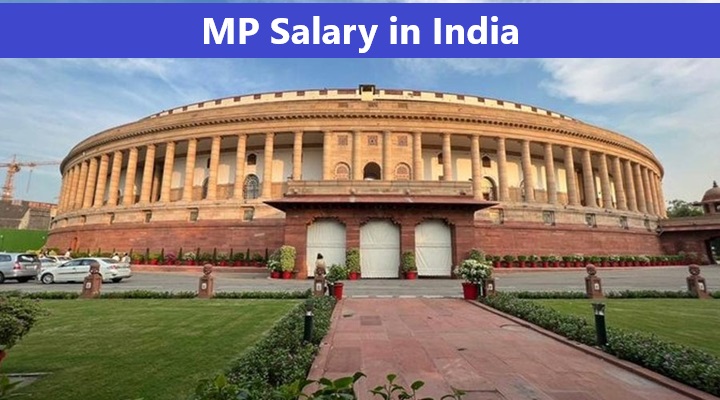Introduction: Judge Salary
Judge Salary play a critical role in maintaining law and order and upholding justice. Their responsibilities are immense, and so are the expectations society places on them. A common query among aspiring legal professionals is about the salary structure of judges, including perks and allowances.
In this comprehensive article, we’ll delve into judge salaries at various levels—district, state, and Supreme Court—in India and briefly touch upon global counterparts. We’ll also discuss additional benefits, growth opportunities, and frequently asked questions to provide a clear understanding of the topic.
Factors Influencing Judge Salary
The salary of judges is influenced by several factors, including:
- Judicial Rank: Higher-ranked judges (e.g., Supreme Court judges) earn more than lower-court judges.
- Experience: Judges with more experience or tenure often receive additional allowances and increments.
- Jurisdiction: Salaries may vary depending on the country or state where a judge serves.
- Economic Conditions: Budgetary allocations and government policies also impact judicial salaries.
Judge Salary in India: A Detailed Breakdown
In India, judicial salaries are determined by the 7th Pay Commission. Here’s a breakdown:
1. District Court Judges
- Entry-Level Salary: ₹56,100 to ₹1,77,500 per month.
- Mid-Level Salary: ₹1,11,000 to ₹2,16,600 per month (after promotions).
- Chief Judge of District Court: ₹1,44,840 to ₹2,24,100 per month.
Additional Perks:
- Housing allowance or government quarters
- Travel and vehicle allowances
- Pension benefits
2. High Court Judges
- Basic Salary: ₹2,25,000 per month.
- Chief Justice of High Court: ₹2,50,000 per month.
Allowances:
- Dearness Allowance (DA)
- Special pay for official duties
- Medical reimbursements
3. Supreme Court Judges
- Basic Salary: ₹2,50,000 per month.
- Chief Justice of India (CJI): ₹2,80,000 per month.
Additional Benefits:
- Official residence with staff
- Chauffeur-driven vehicle
- Free medical facilities
- Lifetime pension
Perks and Allowances for Judges
Apart from their salaries, judges enjoy several perks, which make the role financially rewarding:
- Housing: Judges often receive fully furnished government quarters or housing allowances.
- Transport: Free official vehicles with chauffeurs are provided.
- Medical Facilities: Judges and their families receive comprehensive healthcare benefits.
- Pension: Lifetime pension benefits are guaranteed upon retirement.
- Travel Allowances: Reimbursement for official travel, including airfare and accommodation.
Global Perspective: Judge Salary Around the World
United States:
- District Judges: $218,600 annually.
- Supreme Court Judges: $274,200 annually.
- Chief Justice of the United States: $286,700 annually.
United Kingdom:
- High Court Judges: £192,679 annually.
- Supreme Court Judges: £226,193 annually.
Australia:
- Federal Court Judges: AUD 468,020 annually.
- Chief Justice: AUD 558,370 annually.
Comparison:
While Indian judges’ salaries may seem lower compared to their Western counterparts, the additional perks and cost of living balance the scale.
Career Growth in Judiciary
Judges have a structured career growth path, which impacts their salaries:
- Entry-Level Judges: Start as magistrates or district judges.
- Promotions: Based on experience, judges can rise to High Court or Supreme Court positions.
- Special Appointments: Some judges are appointed as members of commissions or tribunals post-retirement, which brings additional financial benefits.
FAQs: Frequently Asked Questions About Judge Salary
Q1: What is the starting salary of a judge in India?
A: Entry-level district judges earn between ₹56,100 and ₹1,77,500 per month, excluding perks.
Q2: How is the Chief Justice of India compensated?
A: The Chief Justice of India receives ₹2,80,000 per month, along with housing, transport, medical, and other benefits.
Q3: Do judges pay income tax on their salaries?
A: Yes, judicial salaries are subject to income tax, but judges receive several tax exemptions on allowances.
Q4: Are judges entitled to a pension?
A: Yes, judges receive lifetime pension benefits based on their last drawn salary.
Q5: How do judicial salaries in India compare to other countries?
A: Indian judges earn less in absolute terms compared to countries like the U.S. or the U.K. However, their perks and the lower cost of living make their compensation competitive.
Q6: Can judges engage in other jobs for extra income?
A: No, judges are prohibited from taking up other jobs or business activities to ensure impartiality.
Q7: Do retired judges receive any additional benefits?
A: Yes, retired judges often receive pensions, healthcare benefits, and post-retirement appointments in commissions or tribunals.
Q8: How often are judicial salaries revised?
A: Judicial salaries are reviewed periodically, typically after Pay Commission recommendations.
Why Are Judge Salary Important?
Judicial salaries are critical for the following reasons:
- Attracting Talent: Competitive pay ensures that the judiciary attracts the best legal minds.
- Maintaining Independence: Adequate compensation reduces the risk of corruption or external influence.
- Encouraging Longevity: Good salaries and perks encourage judges to stay in service longer, ensuring stability.
Challenges and Recommendations
Despite their perks, judicial salaries in India face certain challenges:
- Disparities: There’s a significant gap between lower and higher judiciary salaries.
- Workload: Judges handle extensive caseloads, which often outweigh their compensation.
Recommendations:
- Periodic salary hikes to match inflation.
- Uniform pay structures across states to avoid disparities.
Conclusion to Judge Salary
The salary of a judge is not just a number; it represents the value society places on justice and integrity. While the financial rewards of being a judge are substantial, the role’s significance goes beyond money, focusing on serving justice and maintaining societal order. With structured pay scales, additional perks, and career growth opportunities, the judiciary remains an attractive career path for aspiring legal professionals.
For anyone considering a career in the judiciary, understanding the salary structure is a step toward making an informed decision.











Leave a Reply